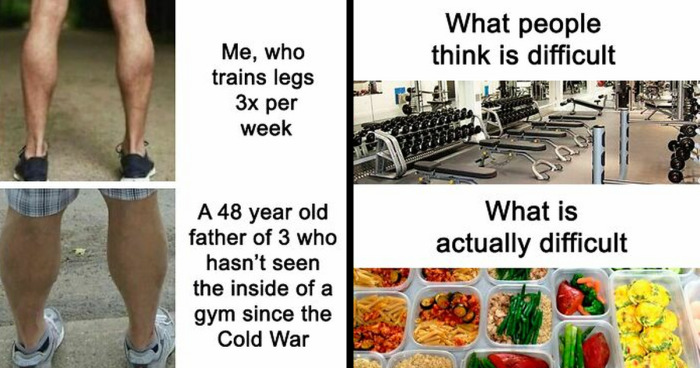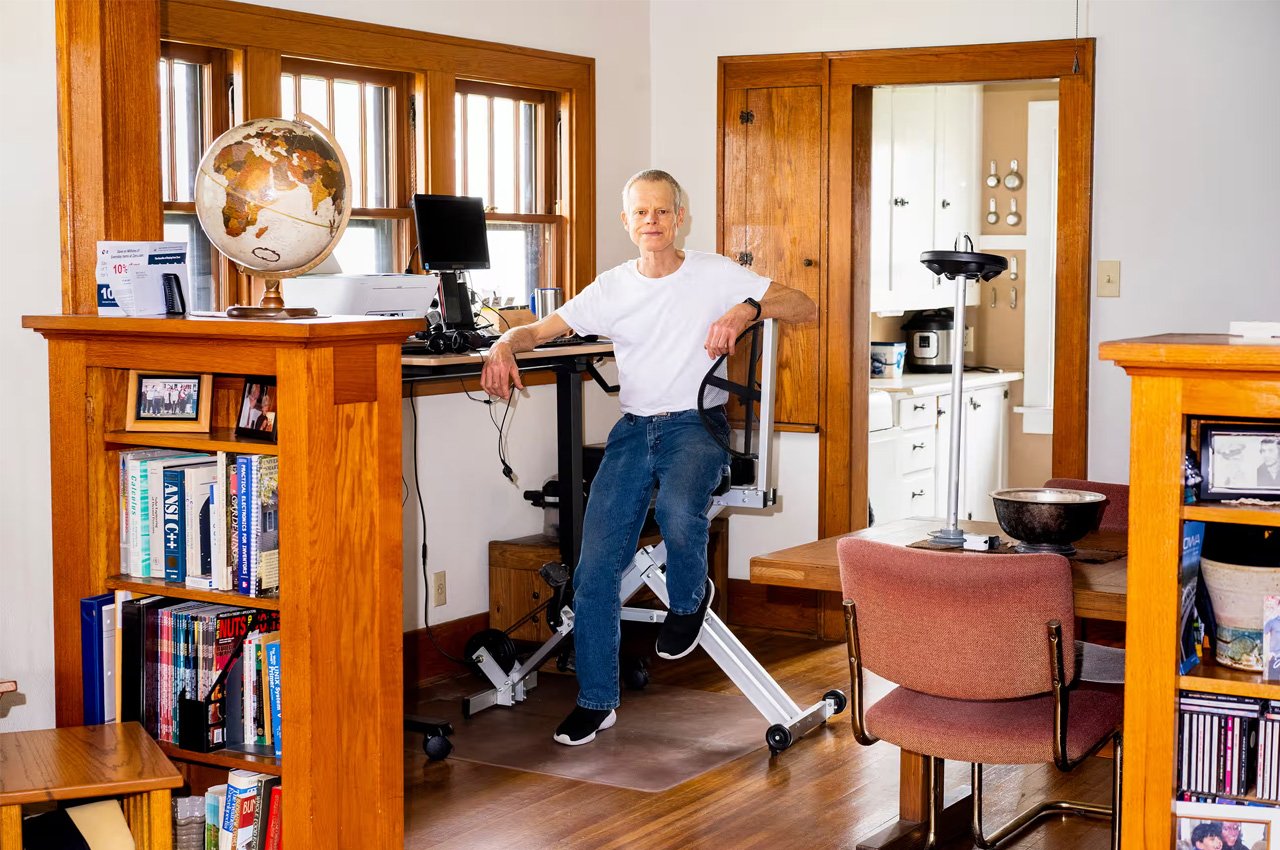Exercise is good for you. But getting started and following your workout plan — not to mention dieting and getting enough rest — can be tough.
So the Instagram account ‘Fitness Motivation and Comedy’ is trying to bring a little bit more fun into the equation.
It regularly shares memes that describe every step of the journey, allowing people to relate to one another through their achievements and struggles, making the whole experience more enjoyable and less isolating.
After all, it’s the process that counts, not the results!
More info: Instagram
But scientific findings suggest there’s one more obstacle: our brains don’t want our bodies to exercise.
For most of our existence, we had to be physically active to carry out the basic functions of life, such as finding or growing food. So humans evolved to tolerate a high level of activity—but also to gravitate toward rest when possible, to save energy for when movement was either necessary or pleasurable, said Daniel Lieberman, a human evolutionary biologist and author of Exercised: Why Something We Never Evolved to Do is Healthy and Rewarding.
Simply put, hunter-gatherers weren’t out jogging to burn calories. From an evolutionary perspective, “that would be a stupid thing to do,” Lieberman said. “You’re wasting energy on something that’s not going to give you any benefit whatsoever.”
Now, many of us don’t move much in the course of daily life, but the evolutionary instinct to preserve energy remains, Lieberman explained. “That disinclination, that reluctance, that voice that says, ‘I don’t want to [exercise],’ is completely normal and natural.”
But we need to fight that urge, as consistent exercise is good for our health and well-being.
The 2018 physical activity guidelines recommend that adults engage in at least 150 to 300 minutes per week of moderate exercise, 75 to 150 minutes each week of vigorous movement, or an equivalent combination of both intensities.
(Moderate physical activity is defined as walking, weightlifting, and lower-intensity exercise. Meanwhile, vigorous exercise is categorized as running, bicycling, and swimming.)
However, a 30-year study of more than 116,000 U.S. adults discovered that going beyond that substantially contributes to longevity.
Participants who performed two to four times above the recommended amount of moderate physical activity had a 26% to 31% lower all-cause mortality and a 28% to 38% lower risk of cardiovascular disease mortality.
So whether it’s mineral water, memes, or something else, if you can bypass your caveman brain and get moving, you should reap the benefits and start feeling better!



